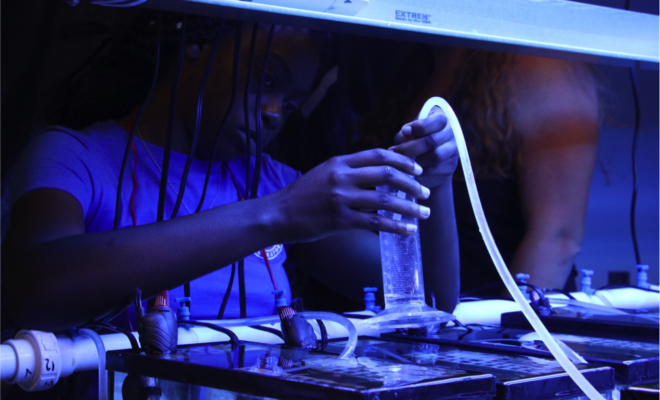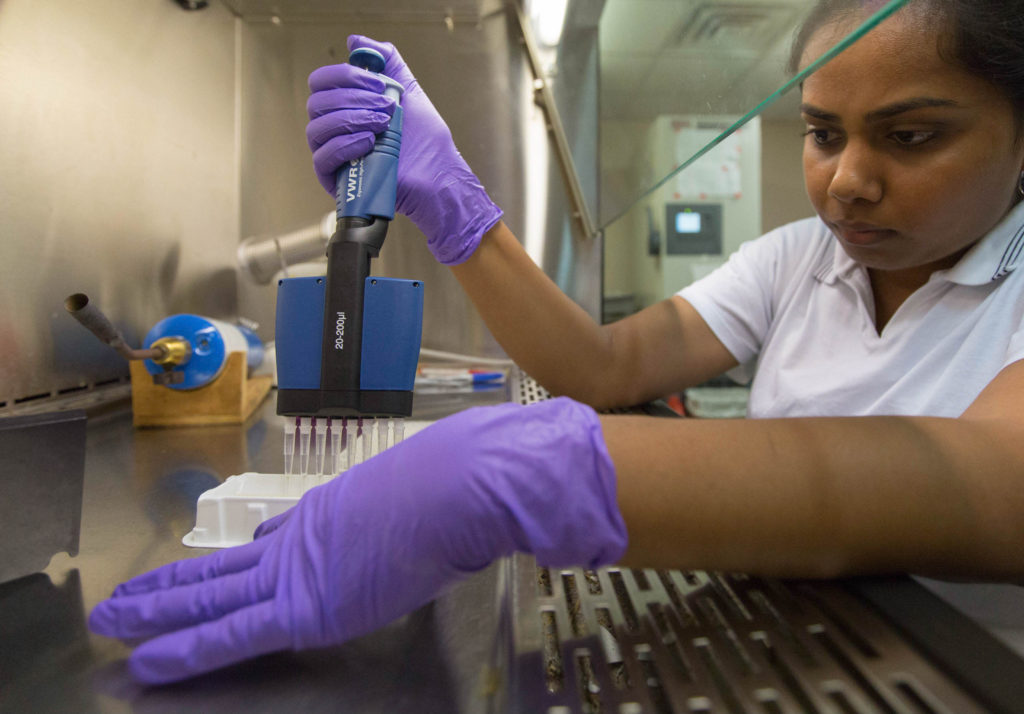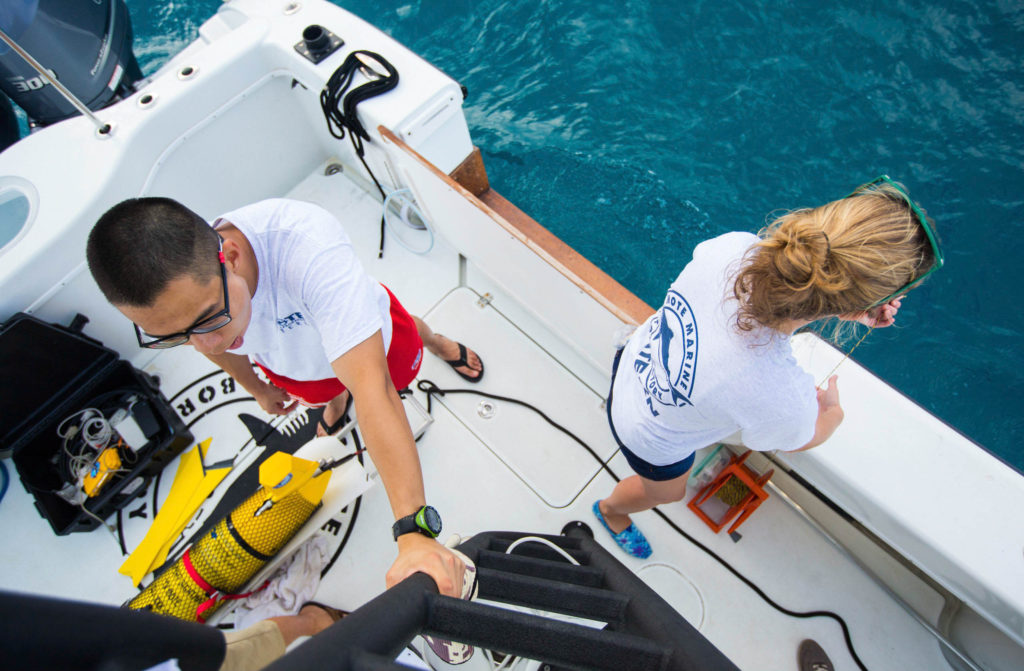
Education
Education Matters
Changing the Face of Science:
Mote’s Commitment to Diversity
By Ryan G. Van Cleave
While STEM fields are full of promising career options, the reality is that the number of underrepresented groups entering these areas is shockingly low. A 2015 National Science Foundation report notes that “Although whites’ share of Science & Engineering degrees has declined, they continue to earn a majority of degrees in all broad S&E fields.” When it comes to marine science, only 11% who earn undergraduate degrees in this area are from minority groups, but those same groups comprise more than twice that amount in terms of sheer population. That’s an issue.
Mote Marine Laboratory & Aquarium is committed to changing this situation through MarSci-LACE (Marine Science Laboratory Alliance Center of Excellence), which is supported through the National Science Foundation’s Louis Stokes Alliance for Minority Participation (LSAMP). To put it plainly, this initiative builds on Mote’s existing model for undergraduate research experiences and will be used to help recruit, support, and retain underrepresented minorities to increase diversity in marine STEM fields well beyond the Mote campus.
Mote’s Assistant Vice President for Education, Aly Busse, says that “we’ve been thinking about ways to increase minority representation in science for some time now. MarSci-LACE is a great step in this direction.” She adds that Mote is the only independent, non-academic organization to receive any LSAMP grant, which speaks volumes about how well-regarded Mote is on the national stage.
Few can appreciate the need for this major initiative to increase STEM participation in underrepresented populations more than Mote scientist newcomer Jasmin Graham. She grew up in Columbia, SC, and spent a lot of time fishing in the ocean—“for low-income families, that was a primary way to feed a family.” While the rest of her family worked their rods and reels, Jasmin swam and spent a lot of time in the water, and she loved it. When she got older, she had the chance to attend a summer camp that introduced marine science to kids. “That was the first time I realized that my love for the ocean was something I could do as a career.”
When she received a scholarship to attend the College of Charleston, she continued her education in the sciences, and just completed her Master’s degree in biological science at Florida State University in 2019, before joining the Mote team. “I just went through the entire process as a Black woman, and it was tough. There were times I considered taking the path of least resistance,” she admits. “But, thankfully, I pushed through. I now want to make the path less hard for those who come behind me.”

Thanks to the efforts Mote is making—with Jasmin’s work as the new coordinator for MarSci-LACE—students from all backgrounds can make science a viable career option. It’s going to take serious work, however. “STEM in general suffers from a bottleneck situation. Underrepresented minorities are often coming from schools that historically don’t have the funding or support in the sciences,” she explains. “Beyond that, in higher education, research shows that it’s hard for students of color to get mentors they can identify with and who understand them. There’s a profound identity crisis with students coming from different cultural backgrounds than their peers.”
Busse points out that while the National Science Foundation has an internship program, it’s only set up to support 10 students per institution, and as such, it’s highly competitive. For example, Mote often sees nearly 500 applications for those 10 spots. And that’s why Mote cultivates philanthropic support to fund others. “This summer,” says Busse, “we’ll have the funds for more than 20 interns.” Without funding, you’re talking about unpaid internships, and that creates challenges for low-income underrepresented groups where someone often can’t just take off for 10 weeks in the summer, regardless of the reason.
Jasmin adds that they’re starting a 3-part series for creating mentors who will be well-trained to teach both the hard science skills as well as have the cultural awareness to foster a clear sense of belonging and community. She’s excited about how all of this, taken together, will help kickstart the movement to system reformation in the sciences.

Ultimately, though, it comes down to science in general, and marine science in specific. “The most important thing people should know about marine science,” Jasmin explains, “is that there’s so much life in the ocean. It’s easy to just look and see water, but it’s such a vital part of the global ecosystem, the biosphere. Most don’t realize that the majority of air we breathe is courtesy of phytoplankton.” After a pause, she says, “My big goal is this—to protect the ocean and everything in it as much as we can. Because we don’t always realize how important something is until it’s gone, and at that point, it’s way, way too late.”
And utilizing a diversity of people, perspectives, and experiences might be just what it takes to help protect our oceans and the astonishing world of life within it.
FOR MORE INFORMATION on Mote Marine Laboratory, please visit www.mote.org or call 941.388.4441.



You must be logged in to post a comment Login